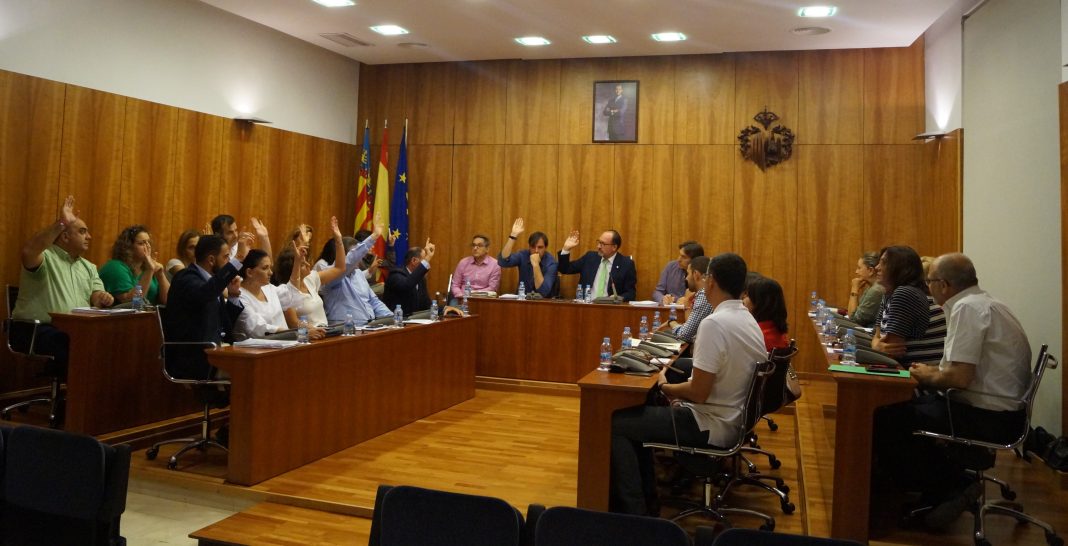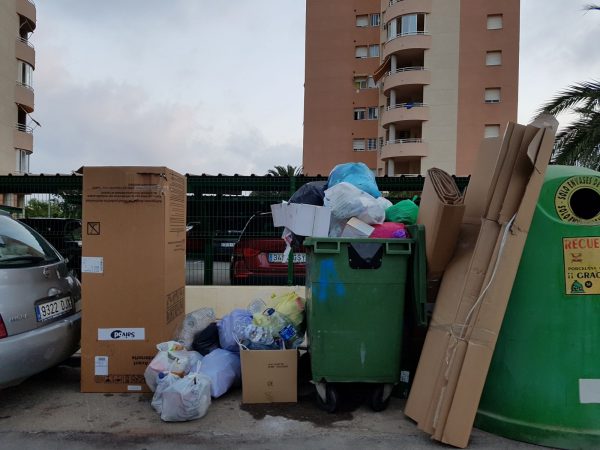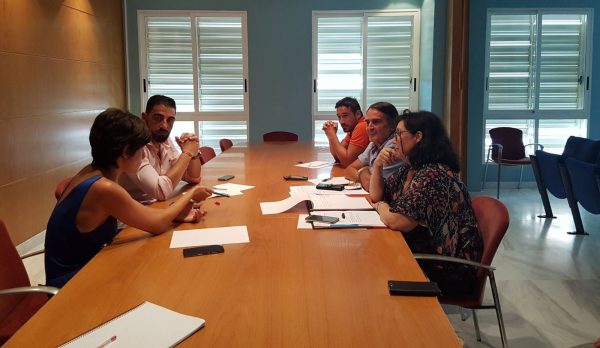With all of them voting in favour, the thirteen Councillors from the Partido Popular and Ciudadanos were enough to approve the 2017 Orihuela budget, despite the unanimous opposition from all other political groups. The PP and C’s approved the budget of 83,735,918 euros in an extraordinary plenary session held last Thursday.
The other twelve councillors, representing the opposition, PSOE, Cambiemos and Foro Democrata, all voted against the motion alleging that it was far too late in the year, and that it did not take into account any of their, more than fifty, suggested amendments that had been submitted.
The spokesman of FAOC (the Federación De Asociaciones De Vecinos De Orihuela Costa), Tomás Moreno, was also quick to slam the Budget, saying that “it was a backward step for the Orihuela Costa, where, despite the City council acquiring increased taxes, they continue to provide the residents of the Orihuela Costa with very poor services and an infrastructure that is both obsolete and defunct.”
He said that the Budget allocation for the Orihuela Costa is “insufficient,” even considering the additional funding derived from the sale of public land, and it will not solve the serious deficiencies that residents continue to suffer from on the coast.
Despite promises a week earlier by the mayor, Emilio Bascuñana, that it could all be changed with more funds allocated to the coast, the budget remained untouched. The multicultural centre will remain nothing more than a project, the beaches will see few, if any, improvements and the work needed to avoid the serious annual effects of flooding will continue, in spite of a plan that identifies the areas to be developed. Neither will planned road signing and tarmacking meet the needs of coastal drivers as many roads across the area continue to be dangerous to use because of their poor state of maintenance.
The highest individual departmental allocation of 8,800,000 euros is to road cleaning and urban waste, but even that is a reduction of 700,000 euros over 2016. As such road cleaning will still be very poor on the coast, due to lack of people and machines, and the urban street furniture, such as litter bins, will continue be ignored.
In summary, despite tax increases and the highest rate of IBI of all the neighbouring municipalities, the coastal allocation falls well short of the investment that is required, as a result of which the Orihuela Costa will continue to be, especially during the summer months, a dirty and a depressing spectacle for residents and its many thousands of visitors, giving an unfortunate and damaging image of the municipality.
On the day prior to the release of the Municipal budget FAOC representatives had met with the Coastal Services Coordinator, Luisa Bonè and the Councillor of Urban Waste and Road Cleaning, Dámaso Aparicio, a meeting that all parties agreed was extremely useful and must become a regular occurrence in the future.
Luisa Bonè spoke of her plans for the next 12 months which included tarmacking in Villamartín, Campoamor, La Florida, La Regia, La Zenia and Punta Prima, improvements to the maintenance of parks, gardens and playgrounds across the area, to cover the renovation of equipment as well as palm tree pruning and clearing.
She spoke of plans for a skate park and a football field at the Rotunda de Villamartín and then went on to talk about coastal improvements including new walkways, lifejackets, children’s games and refuse containers on all beaches. There would also be improvements to the walkway from Cabo Roig to Cala Capitan which would include recessed light, and handrails for safety.
Unfortunately there was no such positive outlook from Dámaso Aparicio, the Councillor for Urban Waste, Road Cleaning and Urban Welfare, who opened with news of the decrease of almost €1 million in the 2017 Budget, compared to that of 2016.
He said there was no investment to build an Eco park, although it will continue to be a project, nor is he able to distribute any more containers for garden waste, or to improve the frequency of collection. There will, however, be a promotional campaign to improve the knowledge of all residents.
FAOC said that they estimate more than a third of all refuse containers are in need of repair or replacement, which Aparicio said cannot be done due to lack of funding, nor can the current frequency of refuse collection be improved with the transport and manpower available. He did say that police action will be enforced to eradicate bad practices in leisure areas, such as Aguamarina, where owners of bars and restaurants will be required to show better discipline when disposing of waste.
Neither can road cleaning be improved with the current means, which, in FAOC’s opinion, will continue to be poor. Labourers help to alleviate deficiencies, but they should not be the ultimate solution.
To conclude the meeting FAOC handed Aparicio an extensive list of deficiencies in each of the following areas, together with an assessment of the level of service currently provided: La Regia (very poor), Aguamarina (poor), La Zenia (poor), Villamartín (Very poor), Las Filipinas (poor), La Florida (very poor), Campoamor (poor) and Mil Palmeras (poor).
Aparicio said that he really did understand the concerns of Coastal Residents and that he and his staff will do all that they can to alleviate the problems and improve the services, but in the light of current budget constraints he will be unable to resolve them all.
However, in a report publish on Saturday in the Spanish Press, Aparicio said that the present situation isn’t helped as the Orihuela Costa is currently “overwhelmed” with an increase in the number of tourists, approaching 300,000.
In a separate development, the President of Movimiento Ciudadano La Zenia, businessman Félix Arenas, announced that he has a team of solicitors working on a legal action that will force mayor Bascuñana to explain both his decision to sell public land on the Orihuela Costa and to justify the allocation of funding derived from its sale.
He says that his team will also be reporting the matter to José Cholbi, the Ombudsman who represents the Valencian Community in the European Union.







